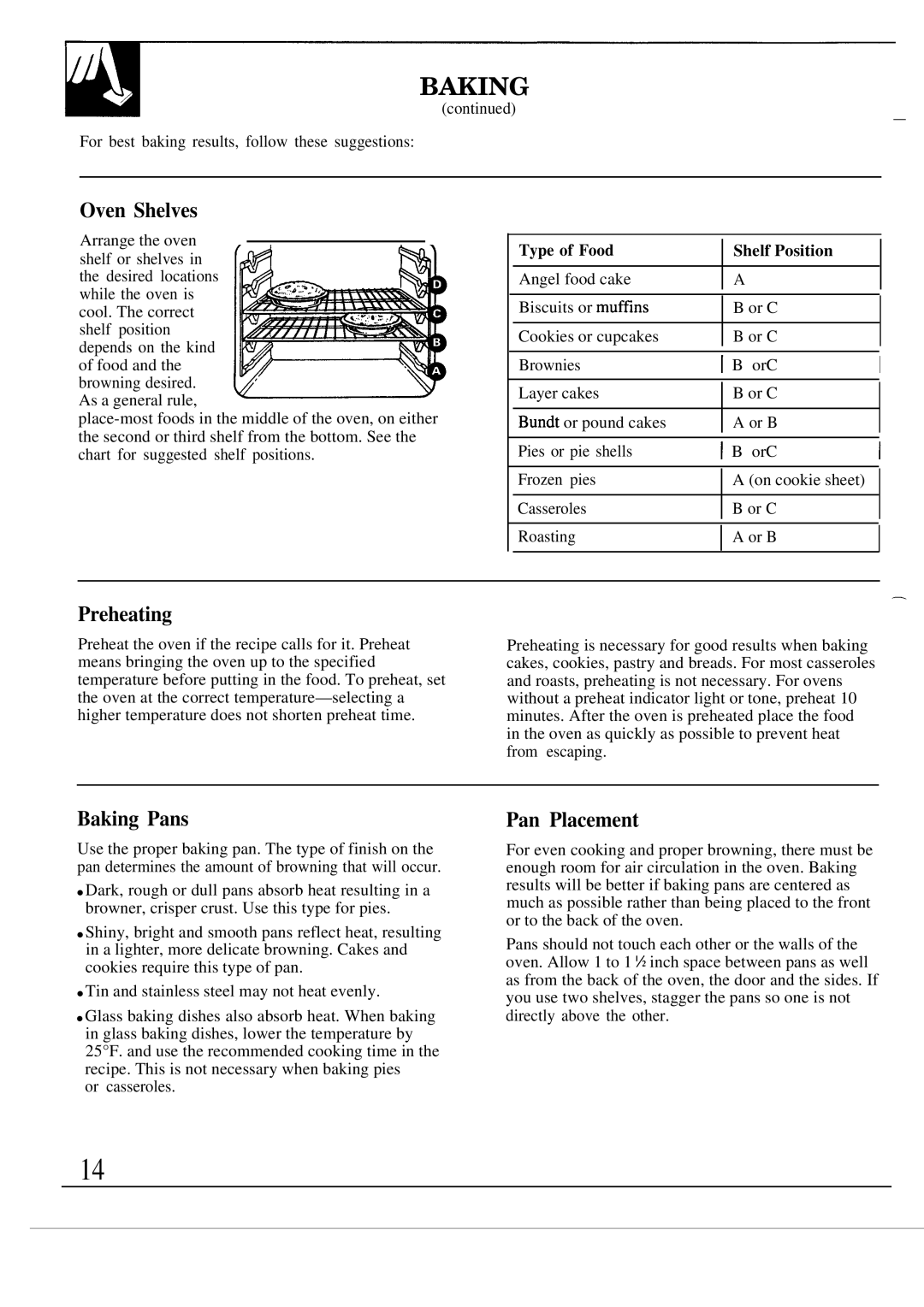
BAKING
(continued)
For best baking results, follow these suggestions:
—
Oven Shelves
Arrange the oven shelf or shelves in the desired locations while the oven is cool. The correct shelf position depends on the kind of food and the browning desired. As a general rule,
| Type of Food |
| Shelf Position |
|
|
|
|
|
| ||
|
|
|
|
|
|
| Angel food cake |
| A |
|
|
|
|
|
|
|
|
| Biscuits or muffhs |
| B or C |
|
|
|
|
|
|
|
|
| Cookies or cupcakes |
| B or C |
|
|
|
|
|
|
| I |
| Brownies |
| B orC |
| |
| Layer cakes |
| B or C |
|
|
|
|
|
| ||
|
|
|
|
|
|
| Bundt or pound cakes |
| A or B |
|
|
|
|
|
|
|
|
| Pies or pie shells | I | B orC | I | |
|
|
|
|
|
|
| Frozen pies |
| A (on cookie sheet) |
|
|
|
|
|
|
|
|
| Casseroles |
| B or C |
|
|
|
|
|
|
|
|
| Roasting |
| A or B |
|
|
|
|
|
|
|
|
.
Preheating
Preheat the oven if the recipe calls for it. Preheat means bringing the oven up to the specified temperature before putting in the food. To preheat, set the oven at the correct
Preheating is necessary for good results when baking cakes, cookies, pastry and breads. For most casseroles and roasts, preheating is not necessary. For ovens without a preheat indicator light or tone, preheat 10 minutes. After the oven is preheated place the food in the oven as quickly as possible to prevent heat from escaping.
Baking Pans
Use the proper baking pan. The type of finish on the pan determines the amount of browning that will occur.
●Dark, rough or dull pans absorb heat resulting in a browner, crisper crust. Use this type for pies.
●Shiny, bright and smooth pans reflect heat, resulting in a lighter, more delicate browning. Cakes and cookies require this type of pan.
●Tin and stainless steel may not heat evenly.
●Glass baking dishes also absorb heat. When baking in glass baking dishes, lower the temperature by 25°F. and use the recommended cooking time in the recipe. This is not necessary when baking pies
or casseroles.
Pan Placement
For even cooking and proper browning, there must be enough room for air circulation in the oven. Baking results will be better if baking pans are centered as much as possible rather than being placed to the front or to the back of the oven.
Pans should not touch each other or the walls of the oven. Allow 1 to 1 k inch space between pans as well as from the back of the oven, the door and the sides. If you use two shelves, stagger the pans so one is not directly above the other.
14
